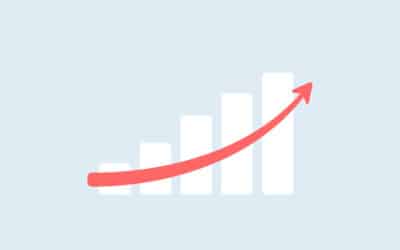HMRC has published a policy paper outlining the forthcoming changes to the penalties for late payment and interest harmonisation for taxpayers.
The government intends to reform sanctions for late submission and late payments to make them ‘fairer and more consistent across taxes’. Initially the changes will apply to VAT and Income Tax Self Assessment (ITSA).
The changes will see interest charges and repayment interest harmonised to bring VAT in line with other tax regimes, including ITSA.
Under the new regime, there are two late payment penalties that may apply: a first penalty and then an additional or second penalty, with an annualised penalty rate. All taxpayers, regardless of the tax regime, have a legal obligation to pay their tax by the due date for that tax. The taxpayer will not incur a penalty if the outstanding tax is paid within the first 15 days after the due date. If tax remains unpaid after day 15, the taxpayer incurs the first penalty.
This penalty is set at 2% of the tax outstanding after day 15.
If any of the tax is still unpaid after day 30 the penalty will be calculated at 2% of the tax outstanding after day 15 plus 2% of the tax outstanding after day 30. If tax remains unpaid on day 31 the taxpayer will begin to incur an additional penalty on the tax remaining outstanding. This will accrue at 4% per annum.
HMRC will offer taxpayers the option of requesting a Time To Pay arrangement which will enable a taxpayer to stop a penalty from accruing by approaching HMRC and agreeing a schedule for paying their outstanding tax.
For VAT taxpayers, the reforms take effect from VAT periods starting on or after 1 April 2022. The changes will take effect for taxpayers in ITSA from accounting periods beginning on or after 6 April 2023 for those with business or property income over £10,000 per year (that is, taxpayers who are required to submit digital quarterly updates through Making Tax Digital for ITSA).
For all other ITSA taxpayers, the reforms will take effect from accounting periods beginning on or after 6 April 2024.
More similar content
Succession Planning for Farms
Have you thought about succession and the long-term plans for your family farm? As agriculture makes up the highest concentration of family businesses passed through the generations, it is no surprise that succession is a key issue and is something farmers need to...
UK company size thresholds to increase
To cut complexity and burdens from legislative reporting requirements, the thresholds for company sizes in the UK are being increased by 50%. Following the Spring Budget, it has been announced by the Prime Minister Rishi Sunak that the company size thresholds will be...
The tax year ends on 5th April each year, why is this?
Well you can blame the Romans, especially Julius Caesar and Europe. Back in 1582 the Pope Gregory X111 commanded the change from the Julian calendar as there was a problem. It ran for 30 or 31 days for 11 months and it was only February that had 28 days (29 every 4...





